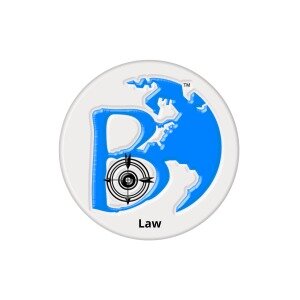Best Public-Private Partnerships (PPP) Lawyers in Jamaica
Share your needs with us, get contacted by law firms.
Free. Takes 2 min.
Or refine your search by selecting a city:
List of the best lawyers in Jamaica
About Public-Private Partnerships (PPP) Law in Jamaica
Public-Private Partnerships, commonly known as PPPs, are collaborative projects between government entities and private sector companies. In Jamaica, PPPs are used to finance, develop, and manage public infrastructure and services, ranging from highways and airports to schools, hospitals, and utilities. The government leverages the expertise and efficiency of private businesses, while the private sector may benefit from steady, long-term revenue opportunities. The legal framework for PPPs in Jamaica is designed to ensure transparency, public benefit, and value for money, aligning government interests with those of investors and developers.
Why You May Need a Lawyer
Engaging in a PPP in Jamaica involves complex legal and regulatory processes. Here are some of the most common situations where people and organizations may seek legal assistance with PPP matters:
- Evaluating or responding to PPP project proposals and tenders
- Negotiating PPP contracts or consortium agreements
- Due diligence and risk assessment for prospective PPP investments
- Complying with procurement requirements and local regulations
- Structuring project financing and securing government guarantees
- Resolving disputes that may arise during project execution or management
- Understanding the implications of land acquisition, licensing, and permits
- Ensuring adherence to performance standards and reporting obligations
- Advising on exit strategies or project handover at the end of the PPP term
A lawyer specialized in PPPs can help identify risks, protect your interests, and ensure compliance with Jamaican laws and regulatory expectations.
Local Laws Overview
The legal environment for PPPs in Jamaica is shaped by both general and sector-specific statutes, as well as established government policy frameworks. Key aspects include:
- PPP projects are primarily governed by the Government of Jamaica PPP Policy, which outlines principles such as fairness, transparency, competitive bidding, and accountability.
- The Public Procurement Act and its regulations dictate how projects are solicited and awarded, ensuring open and competitive processes for project selection.
- The Privatisation Policy applies to assets and services transferred to private operation, often overlapping with PPP activities.
- Sectoral legislation, such as laws governing transport, utilities, or health, may contain further PPP-related obligations.
- The Development Bank of Jamaica plays a central role in providing guidance, technical support, and oversight to PPP transactions.
- Environmental, labor, and foreign investment rules may also influence PPP structuring, especially where land, employment, or cross-border financing is involved.
A strong legal framework is crucial to maintaining investor confidence and protecting the public interest in these long-term projects.
Frequently Asked Questions
What qualifies as a Public-Private Partnership in Jamaica?
A PPP is generally defined as a legally binding agreement between a public entity and a private party to deliver a public service or infrastructure, where both risks and rewards are shared according to agreed terms.
Who oversees PPP projects in Jamaica?
PPP projects in Jamaica are primarily overseen by the Public Investment Management Secretariat under the Ministry of Finance and the Development Bank of Jamaica, which provide regulation, approval, and transaction support.
How are PPP opportunities advertised in Jamaica?
PPP projects are usually advertised through public tenders and requests for proposals, in accordance with procurement rules, to ensure a fair and open competition.
Can foreign companies participate in Jamaican PPP projects?
Yes, foreign entities can participate, subject to local laws and investment requirements. Joint ventures with Jamaican firms are common, and approvals or licenses may be required.
What is the typical duration of a PPP agreement?
PPPs are long-term arrangements, commonly lasting 15 to 30 years, depending on the project type and risk allocation.
How is financing arranged for PPP projects?
Financing is typically arranged through a blend of private investment, lender funding, and sometimes government guarantees or subsidies to achieve financial viability.
What are the main risks involved in a PPP project?
Risks may include construction and operational issues, revenue or usage shortfalls, regulatory changes, and unforeseen events. Clearly defined contracts are essential for risk allocation.
What happens if either party fails to meet their obligations?
PPP contracts include provisions for dispute resolution, penalties, and sometimes step-in rights for the government. Legal advice can help parties navigate enforcement or remedies.
Are there tax or incentive benefits available for PPP projects?
Certain projects may qualify for tax incentives or exemptions, particularly those that align with national development priorities or are located in Special Economic Zones.
How can a lawyer assist during the PPP bidding process?
A lawyer can review tender documents, ensure regulatory compliance, assist with proposal submissions, and provide strategic advice on negotiations and risk assessment.
Additional Resources
For persons seeking more information or assistance with PPPs in Jamaica, the following resources can be valuable:
- The Development Bank of Jamaica - Central agency supporting PPP development, policies, and project pipelines
- Ministry of Finance and Public Service - Oversight of public investment and procurement frameworks
- Public Investment Management Secretariat - Approval, monitoring, and evaluation of PPP projects
- Jamaica Chamber of Commerce - Business information and advocacy relating to investment and project development
- Jamaica Trade and Invest (JAMPRO) - Guidance on foreign participation and incentives
- The Jamaica Bar Association - Directory of lawyers with expertise in PPPs and related fields
Next Steps
If you are considering participation in a PPP project or simply want to understand your options, here are practical steps to take:
- Clarify your goals, interests, and the type of PPP opportunity you wish to explore
- Research current and upcoming PPP projects through government and industry sources
- Reach out to a lawyer with proven experience in PPP matters for an initial consultation
- Prepare all relevant documentation, such as company records, investment plans, and background information
- Stay informed about updates to laws and policies affecting PPPs in Jamaica
- Engage with professionals such as financial advisors and technical consultants as needed
Early legal advice can help you assess risks, avoid pitfalls, and position your interests effectively within the PPP framework. Seeking expert assistance ensures that you comply with Jamaican laws and maximize the benefits of public-private collaboration.
Lawzana helps you find the best lawyers and law firms in Jamaica through a curated and pre-screened list of qualified legal professionals. Our platform offers rankings and detailed profiles of attorneys and law firms, allowing you to compare based on practice areas, including Public-Private Partnerships (PPP), experience, and client feedback.
Each profile includes a description of the firm's areas of practice, client reviews, team members and partners, year of establishment, spoken languages, office locations, contact information, social media presence, and any published articles or resources. Most firms on our platform speak English and are experienced in both local and international legal matters.
Get a quote from top-rated law firms in Jamaica — quickly, securely, and without unnecessary hassle.
Disclaimer:
The information provided on this page is for general informational purposes only and does not constitute legal advice. While we strive to ensure the accuracy and relevance of the content, legal information may change over time, and interpretations of the law can vary. You should always consult with a qualified legal professional for advice specific to your situation.
We disclaim all liability for actions taken or not taken based on the content of this page. If you believe any information is incorrect or outdated, please contact us, and we will review and update it where appropriate.
Browse public-private partnerships (ppp) law firms by city in Jamaica
Refine your search by selecting a city.















